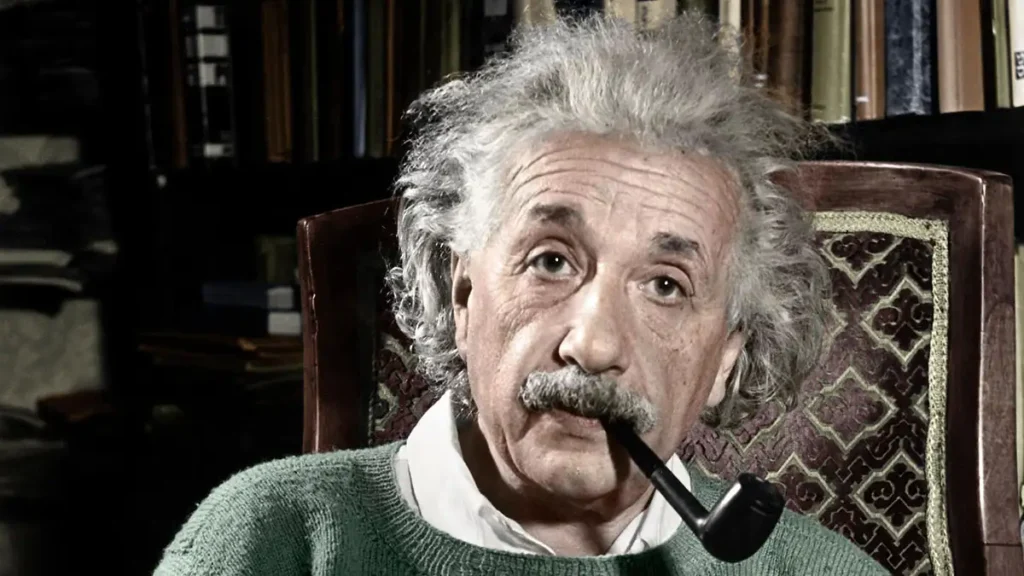Albert Einstein was born on March 14, 1879, and died on April 18, 1955, both in Princeton, New Jersey. S.a was a German-born physicist who developed the special and general theories of relativity in addition to receiving the Nobel Prize in Physics in 1921 for his explanation of the photoelectric effect. Generally speaking, Einstein is regarded as the most significant physicist of the 20th century.

Young Age
His parents were middle-class, secular Jews. Hermann Einstein, his father, began his career as a featherbed salesman and went on to have a successful career as an electrochemical factory manager. A sister of his by the name of Maja, Maria was born two years after Albert.
Thomas Edison
Following his graduation in 1900, Einstein went through one of his most challenging times. Many of his professors, especially Heinrich Weber, disliked him because he frequently missed class in order to concentrate on his independent study of difficult subjects. Sadly, Einstein asked Weber for a recommendation. After that, Einstein was turned down for every academic position he applied for. He wrote subsequently.
Career as a Teacher
Initially, Einstein’s 1905 papers were ignored by the physics community. This began to change when Max Planck, the father of the quantum theory and arguably the most important physicist of his generation, became interested in him.
Thanks to Planck’s praise and experiments that were progressively confirming his theories, Einstein was soon invited to give a lecture at conferences all over the world, such as the Solvay Conferences. His academic career also saw rapid advancement. He was given the chance to work at the Swiss Federal Institute of Technology, the University of Zürich, the University of Prague, and other prestigious institutions. Lastly, the University of Berlin, where he served as the director of the Kaiser Wilhelm Institute for Physics from 1913 to 1933 (despite the institute’s founding being postponed until 1917).
International Notoriety
Einstein’s work was put on hold during World War One. In his writings, he declared that he had “been a pacifist my entire life, one of only four German intellectuals to sign a manifesto opposing Germany’s entry into war. “.
In November 1918, during the turmoil that followed the war, radical students seized control of the University of BerlinThe rector of the college and several professors were held hostage by them. Many people feared that calling the police to free the officials would result in a tragic confrontation. Because he was well-liked by both students and faculty, Einstein was the obvious choice to handle this crisis. It was resolved through negotiation between Einstein and Max Born.
Immigration to America
A backlash was unavoidable given how well-liked Einstein was and how successful his theories were. The early Nazi movement referred to relativity as “Jewish physics” and organized conferences and book burnings to denigrate Einstein and his theories. The Nazis employed other physicists, including Nobel laureates Philipp Lenard and Johannes Stark, to disparage Einstein.Published in 1931 was One Hundred Authors Against Einstein. When asked about the criticism the theory had received from so many scientists, Einstein replied that all it took to disprove relativity was a single fact, not the word of 100 scientists.
World War II, the atomic bomb, and the depression.
professional isolation and mortality are on the rise.
legacy left by Albert Einstein
Einstein might have been too far ahead of his time in some ways rather than a dinosaur. A crucial part of any unified field theory, the strong force, was not fully understood when Einstein was alive. In the 1970s and 1980s, the development of the quark model allowed physicists to finally decipher the nature of the strong force. But Einstein’s contributions continue to win Nobel Prizes for physicists in the future. The 1993 Nobel Prize in physics went to the gravitational wave researchers. The 1995 Nobel Prize in Physics went to the people who discovered Bose-Einstein condensates, a brand-new class of matter that can exist at extremely low temperatures. Black holes now number in the thousands. Later generations of space satellites have supported Einstein’s cosmology. A significant number of distinguished physicists are also working to realize Einstein’s ultimate objective of creating a “theory of everything.”.
Recognize Albert Einstein’s stance on the uncertainty-related aspect of the quantum theory.
View each video that is related to this article.
Einstein was growing more and more isolated from the rest of the physics community, despite the fact that he continued to make important contributions to the theory of general relativity, including the discovery of wormholes, higher dimensions, the possibility of time travel, the existence of black holes, and the origin of the universe. Because of the tremendous advancements made by this theory in revealing the secrets of atoms and molecules, the majority of physicists were working on quantum theory rather than relativity. Niels Bohr, the inventor of the Bohr atomic model, and Albert Einstein did, in fact, have a number of well-known private conversations. Through a complex series of “thought experiments,” Einstein sought to identify logical holes in the quantum theory, particularly its lack of a deterministic mechanism. “. Einstein asserted that the universe is not a game that God plays. “.
A. Einstein
In the 1930s, Einstein struggled. The breakdown of his son Eduard, who had been diagnosed with schizophrenia, occurred in 1930. Eduard would live in a facility for the remainder of his life. Einstein’s close friend and general relativity proponent Paul Ehrenfest is a physicist.
Related Posts
Donald Trump – Best Guide in 2023
